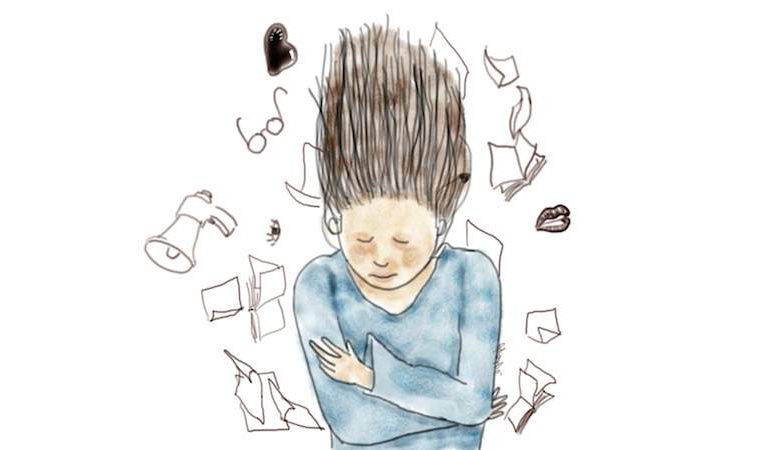Ending Gender-Based Violence and Working with the Religious Community

A couple of days ago, my close friend revealed something about her that I had never suspected before. We were talking about the usual things, about work, family and the latest gossips, when the subject of why we are so jealous of our private space came up.
“When I was little, we moved around a lot,” she said, “and we often lived in a small house in some army base, where I had to share a room with my brother.”
She casually continued, “From time to time he would sexually abuse me.”
I was shocked. In ten years of our friendship, I’d never expected to hear something like this from her. Unlike me, who is prone to some dark episodes, my seemingly happy-go-lucky friend is a picture of lightness, just the right combination of cheerfulness and thoughtfulness. She never reported nor confronted her brother, and they have had a civil, though always distant, relationship, to this day.
What strikes me every time I hear a revelation like this is how pervasive the problem of sexual abuse is all around me. Since I wrote about my own experience, I’ve had people – strangers and acquaintances – text, email or come up to me to tell their own stories of sexual abuse as a child, teenager or grownup, and how it has affected them. Many of them have made peace with the abuse or rapes; some haven’t and are still living with repressed anger, sadness or anxiety.
This corresponds with the statistics that two out of three women throughout the world have or will have experienced some sort of physical or sexual violence in their lifetime. In Indonesia, every two hours, three women endure sexual violence. Economic, social and political disempowerment plays a large part in perpetuating the problems, but all these boil down to gender inequality.
Nothing good can be expected from a culture in which a rape survivor gets blamed for tempting her attacker. When the solution to sexual abuse is to hide a woman’s body in conservative clothing (how about those well covered migrant domestic workers who are raped by their employers in Saudi Arabia?), or to impose a curfew to keep women in the house at night (ironic, considering the majority of abusers of women are people close to them). The worst part about this is that it assumes all men are nothing better than monsters who cannot control their urge to rape a woman. They aren’t.
This is what the 16 Days of Activism against Gender-based Violence is all about. From 25 November, the International Day for the Elimination of Violence against Women, to 10 December, Human Rights Day, many activists, thought leaders, writers, politicians, celebrities have pitched their voice to remind people of the pervasive problem of gender-based violence. The hope is that the efforts will amount to something significant to reduce the problem, but at the very least, it gets people to talk about it.
The role of religion
Gender-based violence doesn’t just exist within the domestic or personal realm. Some of the most pervasive violence is perpetrated by the state through discriminative legislations and the lack of social protection and through society’s failure to change for that better. In countries like Indonesia, both are often heavily influenced by religion.
For that matter, I’d like to commend the recent move by the Ministry of Women’s Empowerment and Child Protection (KPPPA) to engage the religious community to promote gender equality. On December 7, 11 religious organizations, including Muslim and Christian groups, signed an agreement with the ministry to express their commitment to stop child marriage, maternal mortality rate, and to promote gender mainstreaming
These organizations are expected to deliver messages on gender equality through church services, Islamic prayer gathering or any other religious activities. The ministry said it would follow suit by issuing a Ministerial Regulation on the National Action to Accelerate Gender and Child’s Rights Mainstreaming. Gender mainstreaming is basically assessing different implications for women and men of any policies and program in all areas and levels, with the goals of prioritizing gender equality, incorporating gender into decision making, and shifting institutional culture.
It is important to engage the religious community in promoting gender equality because it is no secret that in conventional religious interpretation, a woman is positioned lower than a man, resulting in cultures that are permissive of abusive practices such as early marriage and polygamy.
One of the things highlighted is the practice of nikah siri, marriage that is officiated by Islamic clerics, but not legally registered. These marriages are commonly conducted by disadvantaged people or by men practicing polygamy without the consent of their first wives, or those marrying underage girls.
“We talk about violence against women and child neglect, but we don’t talk about one of the sources of the problem: nikah siri,” Social Affairs minister Khofifah Indar Parawansa, said at a seminar in front of students grouped under the Indonesia’s largest Islamic group the Nahdlatul Ulama.
When a marriage is unregistered, the woman is not entitled to legal protection and her children may be denied birth certificates. Half of 86 million children in Indonesia are not registered by birth, which effectively blocks their access to social protection, education and later employment. Nikah siri marriages are also more prone to domestic violence, child abuse and child trafficking and contribute to the high divorce rate, Khofifah said.
All these should not amount to mere lip service, however. The government should follow this up by raising women’s minimum age for marriage from 16 to 18, which is recognized as the legal age of adulthood, after previous efforts failed. Any effort of gender mainstreaming should also include repealing discriminative bylaws imposed in the regions. And, most importantly, the government should educate the whole rank of law enforcement on gender equality and set measurable indicators to affect a significant institutional culture shift in dealing with gender-based violence cases.
Until then, our work is not done.
Read this woman’s story about why she became a care workers for rape survivors and follow @dasmaran on Twitter.





















